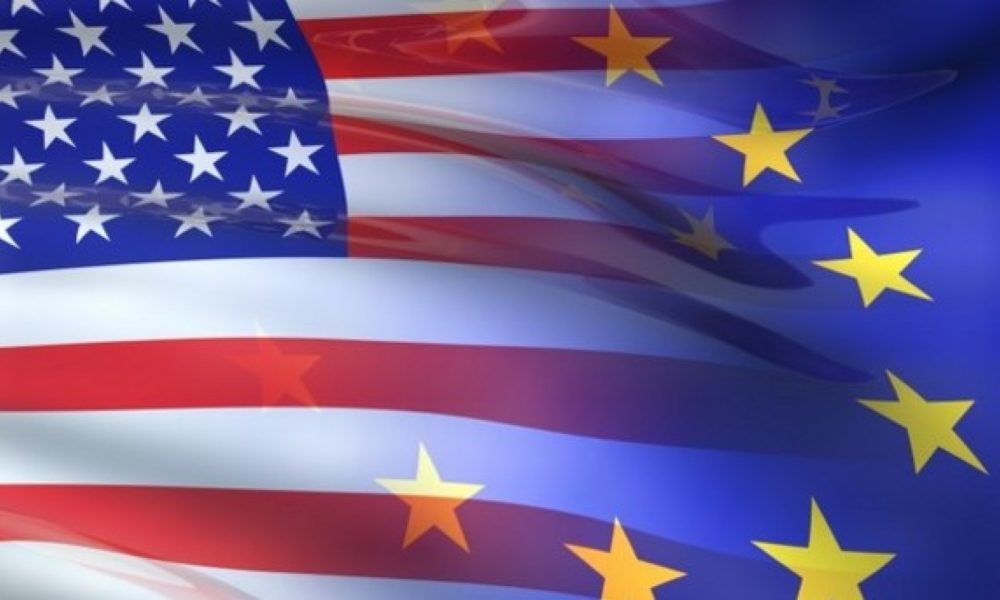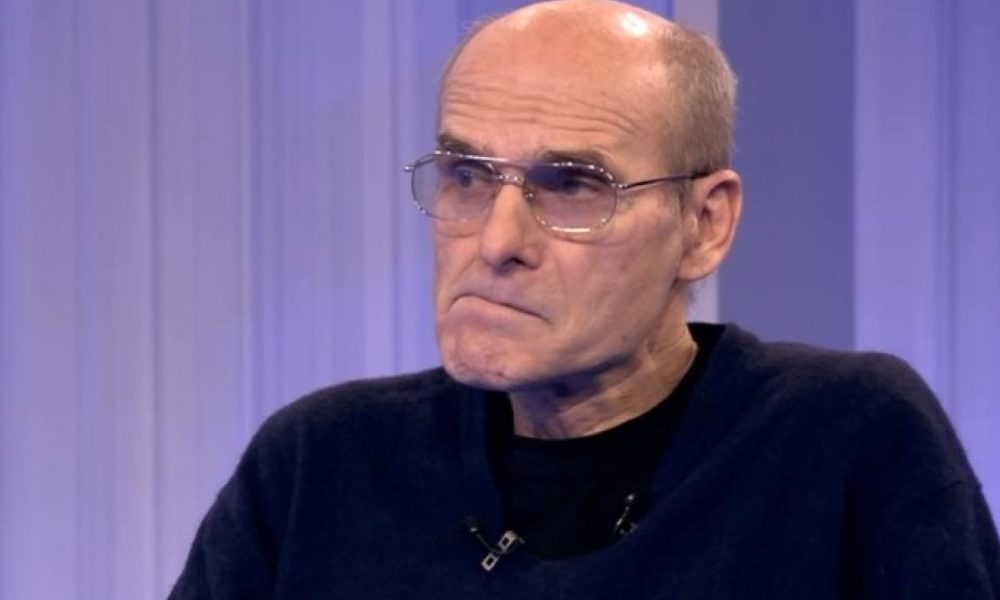from collective defense, to selective defense

If European allies are distanced from the traditional Western values promoted by the Trump administration, then NATO will not be an alliance of values, but a geographical and trading one, in which case Ukraine and certain Member States will count less for the US than others, suggests an essay published by the United States State Department, under the title.The need for civilizing allies in Europe”, Signed by Samuel Samson, counselor at the Office for Democracy and Human Rights. Or, the evolution of the European Union to globalist liberalism, to the detriment of traditional values and antidemocratic slippages in several European states signal this break.
The close relationship between the United States and Europe goes beyond geography and trading policies. It represents a connection created by common culture, faith, family ties, mutual help in difficult times and, above all, through Western civilization inheritance.
Our transatlantic partnership is supported by the western tradition of natural law, national ethics and sovereignty. It is a tradition that comes from Athens and Rome, through medieval Christianity, to the English common law and, finally, to the founding documents of America.
This connection between Europe and the United States is why we speak openly when we have concerns – and that is why the Trump administration draws the alarm signal in Europe. When Vice -President Vance addressed the Munich Security Conference, he clearly said what he does: « I am worried about the threat that comes from within, the renunciation of Europe – some of its fundamental values - values shared with the United States. »
After two devastating world wars, the European states have tried to prevent new catastrophes creating supranational structures that bring nations closer to each other and allow stronger diplomatic and economic commitments. Those who have proposed this new order, including pro-Christian and pro-democracy parties, followed a great transformation-a world that will pass beyond national divisions and open an unprecedented era. Going over national anchors, culture, tradition, global liberalism promised what Francis Fukuyama called « the end of history » – the last innovation of political life.
Today, this promise begins not to hold. I instead deal with an aggressive campaign against the Western civilization itself. In Europe, governments have transformed political institutions into weapons against their own citizens and against our common inheritance. Far from strengthening democratic principles, Europe has become an outbreak of digital censorship, mass migration, restrictions imposed on religious freedom and many other attacks against democratic self -government.
These worrying trends have accentuated in recent years. In the UK, the police arrest Christians because they pray in front of the clinics where abortions are made. In Germany, the government has set up a system elaborated to monitor and censor online opinions, under the mask of combating misinformation and insult prevention. When expressing their legitimate concerns about the economic and social impact of globalization or criticizes politicians, German citizens risk being fined, cataloged as radicals or even wake up with houses searched by law enforcement. The Law of EU digital services, approved to keep children from dangerous online content, is used instead to close the mouths through an orwellian moderation. Alleged independent organizations have become police with social media companies, including with American platforms such as X, and threatens with huge fines for not applying strict language rules.
This environment also restricts the elections in Europe. As Secretary of State Marco Rubio recently said, the alternative to Germany was listed as an extremist party by German secret services, which could lead to the exclusion from the electoral process. The presidential candidate from France Marine Le Pen was accused of hijacking funds and, overcoming the standard procedure, was forbidden to run. The restrictions were also observed in Romania and Poland, against certain parties and politicians. At the same time, Christian states such as Hungary are listed as authoritarian and against human rights.
Americans know these tactics. A similar strategy of censorship, demonization and transformation of bureaucracy was used against President Trump and his supporters. This shows that the global liberal project does not help democracy. Rather, he traces democracy, together with Western inheritance, in the name of a decaying governing class to which he is afraid of his own people.
Our concerns are not partisan, but main. Suppressing the expression, facilitating mass migration, limiting religious freedom and undermining democratic choices threatens the foundation of transatlantic partnership. A Europe that replaces its spiritual and cultural roots, which treat traditional values as dangerous relics and centralize power in institutions that cannot be held accountable is a less capable of cope with external threats and internal decay. This reason, in order to reach peace in Europe and in the rest of the world, it is necessary to reject our common cultural heritage, but its renewal.
The Secretary of State Rubio said that the State Department will always act in the national interest of America. The antidemocratic slippage of Europe has no impact on European citizens, but also affects the economic security of America, economic connections, together with the right to free expression of Americans and American companies.
Our hope is that Europe and the US will keep Western heritage and that European states will cease to turn governments into a weapon against those trying to defend this inheritance. We will not always agree on tactics and goals, but it would be a step forward for Europe if it would guarantee the protection of free political and religious expression, if they would protect their borders and provide free elections.
The US remains engaged for a strong partnership with Europe and to work together for common foreign policy objectives. But this partnership must be based on our common legacy, not globalist conformism. Our relationship is too important, our history is too valuable and international stakes are too great now to allow this partnership to be undermined. Therefore, on both sides of the Atlantic, we must keep our common culture, ensuring that Western civilization remains a source of virtue, freedom and prosperity for the next generations.
After World War II, the US tried to institutionalize peace in Europe (Ambrose Evans-Pritchard wrote, in The Telegraph, that the Schuman Declaration, the founding text of the European Coal and Steel Community, was largely written by the secretary of the head of American diplomacy, Dean Acheson, that Jean Monnet was the Eye and Early Eyes. President Truman has threatened to suspend the Marshall plan if France is not reconciliating with Germany). This European project was applied even more powerful after the Cold War, but gave rise to super-phrase supranational institutions that now compete with the US.
It can be said that the essay published by the State Department signals a US attempt to undo what they have done in Europe, to disinstitate the continent, not to talk to the EU, preferring to strengthen connections with pro-American and Eurosceptic states. What begins to do the State Department is no longer rhetorical for the sake of rhetoric, because it is accompanied by concrete threats with stinging rates and especially by the warning of the US security umbrella.
Former Secretary General NATO Jens Stoltenberg spoke of desserts about « NATO as an alliance of values ». But what values, does Trump’s State Department ask? Political police, language police, restriction of freedom of expression, marginalization of Christians, opening to mass immigration, denial of Greek-Roman heritage? However, it is as legitimate as the European states or the European Commission to wonder what values the Trump administration defends. Police of free expression in universities, against pro-palestinian protests? The disregard of justice decisions against the presidential decrees, that is, the disregard of some provisions of the US Constitution?
After all, what seems to convey the state department through carefully chosen words about « values » and « inheritance » is that the North Atlantic Alliance tends to turn from a collective defense organization into a selective defense organization, in which the US will be almost only « civilizing allies » to the title of the state department.
The Trump administration suggests that if Europe and the US begin to no longer share the same values, that may mean, as the Sumantra Historian writes for The American Conservativethat NATO will rely more on geographical and geopolitical interests, rather than on these « values ». In this case, Ukraine (maybe certain NATO member states) would count much less for the US than other allied states. If the Maga epoch will not end with the second term Trump, for NATO’s European allies, a difficult, risky and no less expensive choice between the EU liberal globalism and Trump’s values, all under Russia’s pressures to change the security architecture in Europe.
In this context, America does not have to act « revolutionary » such as the EU, the American Conservative is still drawing. « That is saying, it is important to know that history shows that revolutions are best exported by example, not by taxation from outside. The imposition leads to the creation of coalitions that oppose it. If the US will oppose the consolidation of the EU as superpowers, it will be a natural impulse and will be followed by a natural counterbalance. The policy will go to « Divide et Impera ». But if the US will try to impose American values in Europe, then a lot of Europeans will think that America is a revolutionary power such as Jacobs or Bolsheviks, an enemy who wants to generate social chaos.
In foreign policy, balance in the age of multipolarity is the greatest virtue. It is essential that diplomats remember that”.







